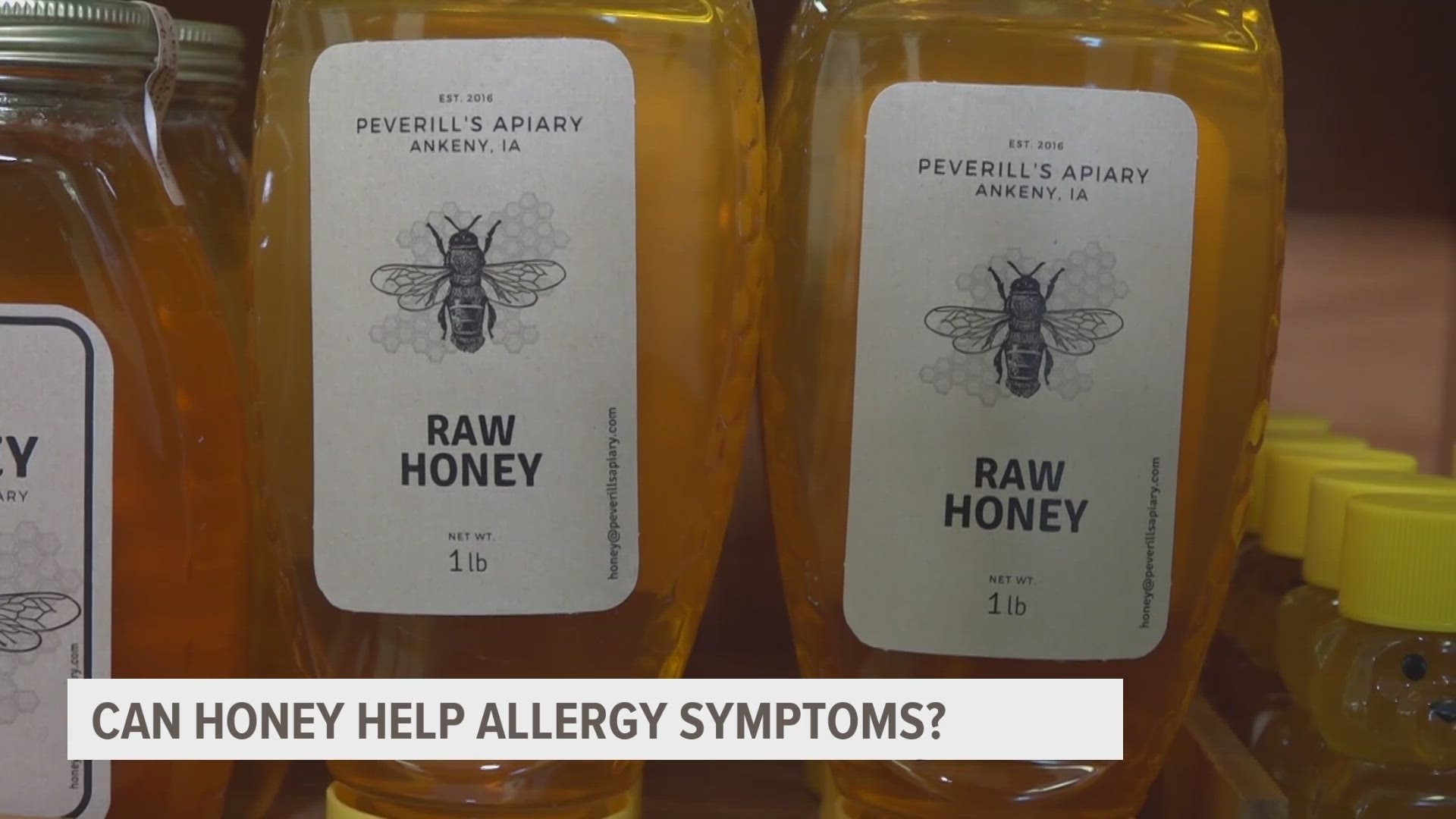ANKENY, Iowa — In the past two decades or so, two studies have been conducted to look at the effectiveness on honey on limiting allergy symptoms. One, coming to the conclusion that "Honey ingestion at a high dose improves the overall and individual symptoms of AR [allergic rhinitis]."
The other, coming to a much different conclusion: "This study does not confirm the widely held belief that honey relieves the symptoms of allergic rhinoconjunctivitis."
"I guess that depends on who you ask," said Mike Peverill, owner of Peverill's Apiary.
Peverill says he's neutral on the subject, but is a firm believer in whatever works for you, works for him.
In other words, some people may see more pronounced effects than others.
"From the beekeeper's perspective, what we like to say is, we want you to ingest local honey," Peverill added.
If it isn't local and raw honey you're eating, you can forget about any potential benefits.
"Think about where you live and think about the flowers and the plants that are there," Peverill said. "Here in central Iowa, we all have the same type of flowers and plants. But let's say we went up to Wisconsin; there's a lot more pine trees and different flowers."
Lighter-colored honey typically gives you your best possible defense against springtime allergies.
That is a defense that Peverill has certainly seen backed up by customers.
"You'd be surprised at the number of people that actually claim these benefits," Peverill said. "It's not like one or two people. We do the farmers market, and there are so many people that show up, and say 'This stuff really helps.' They believe in it."
That's not to saw raw honey is for everybody: Don't feed raw honey to a baby under 12 months old. Their immune systems can't handle and defend against the bacteria that is in unfiltered honey.

